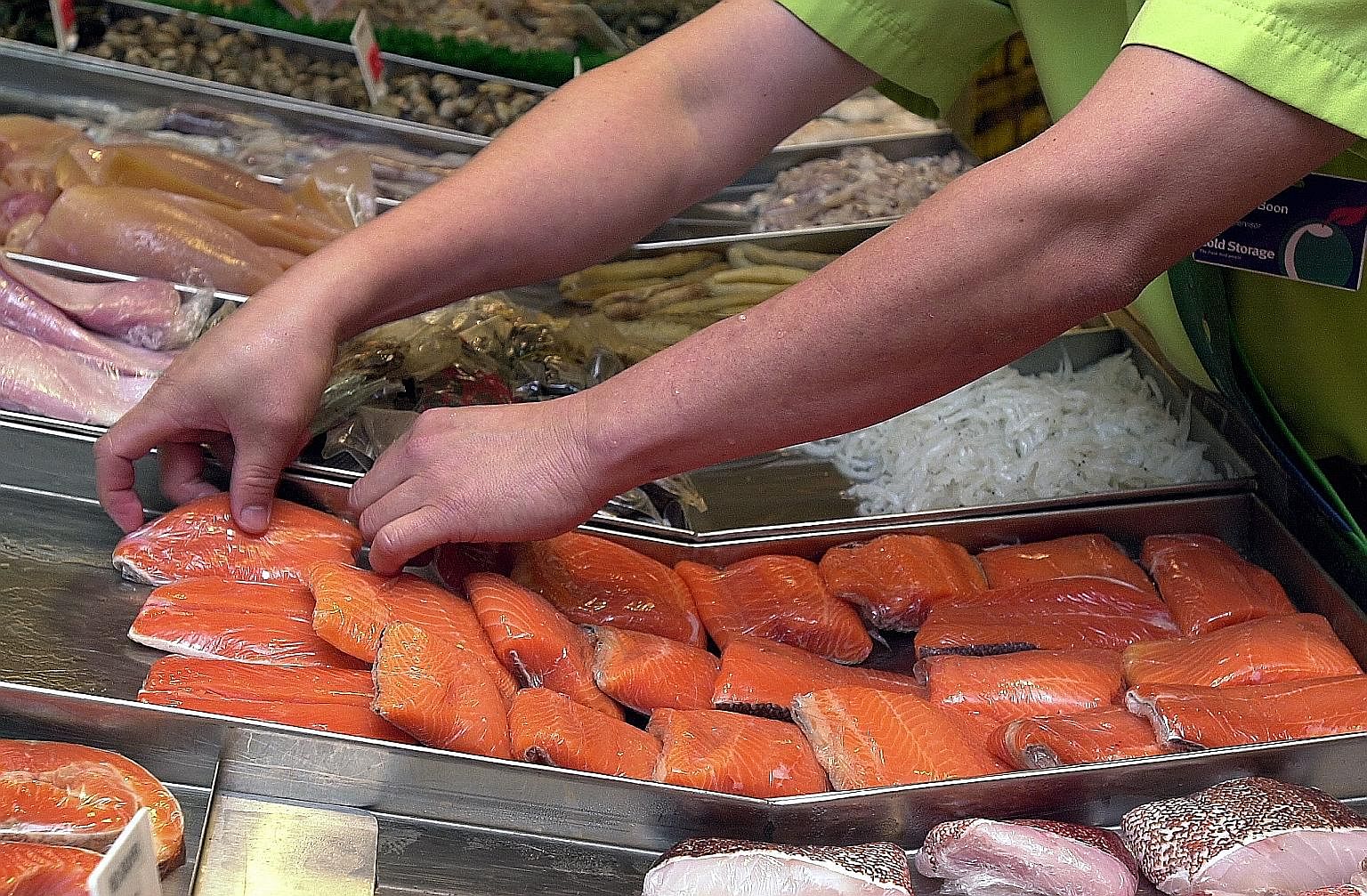askST: Are parasites common in raw food in Singapore?
Infestation by gut parasites are rare here and people who are infected may not show symptoms
Sign up now: Get ST's newsletters delivered to your inbox

People get tapeworms and roundworms from ingesting raw food or water contaminated with tiny worm eggs or larvae.
ST FILE PHOTO
Follow topic:
In the United States, one man recently found to his horror that he had a 1.6m tapeworm living in his gut. How common are such parasites in Singapore? In fact, how risky is eating raw or undercooked food?
The good news is that tapeworms and other parasites that infest the gut are very rare in Singapore. This is because food is usually prepared in a hygienic manner, and in a clean environment, said infectious diseases expert Hsu Li Yang.
People get tapeworms and roundworms from ingesting raw food or water contaminated with tiny worm eggs or larvae.
The only parasitic worm that may have become more commonplace over the years is the fish tapeworm, Prof Hsu said. He attributes this to the increased consumption of raw fish, especially salmon.
"I have heard of at least two such cases in Singapore last year," added Prof Hsu, who is programme leader on antimicrobial resistance at the National University of Singapore's Saw Swee Hock School of Public Health. "(But) we do not know for sure as the data is not recorded and people infested may not have any symptoms."
An adult tapeworm has a head, neck and chain of segments called proglottids. During an intestinal infection, the tapeworm head sticks to the intestinal wall, and the proglottids grow and produce eggs.
Adult tapeworms can live for up to 30 years in a host, according to the Mayo Clinic in the United States.
Depending on the species, tapeworms can grow up to 10m in length. While many people with tapeworm infection do not have symptoms, others may experience nausea, weakness, diarrhoea and abdominal pain. Similarly, roundworm infections are often symptom-free, though some people who are infected may get fever, cough and shortness of breath.
In 2015, an outbreak of the Group B Streptococcus bacteria caused a wave of serious infections in Singapore. While this bacteria is common and does not usually cause problems, it is believed that those who became critically ill had contracted a more aggressive strain.
These people had all consumed raw freshwater fish dishes, which were found to have much higher bacterial contamination than saltwater fish. The common culprits behind run-of-the-mill food poisoning cases tend to be bacteria or viruses, say the experts.
These include E. coli, Salmonella, rotavirus and Campylobacter, said Dr Leong Hoe Nam, an infectious disease specialist from Rophi Clinic. Those infected can suffer from diarrhoea, abdominal pain and fever.
Other bacteria such as Staphylococcus aureus and Bacillus cereus can also form toxins on food, which are not destroyed by heat and go on to cause diarrhoea.
This is why the National Environment Agency recommends that food should not be kept at room temperature for more than four hours from the time it is cooked to the time it is consumed, Dr Leong said. "After four to six hours, the quantity of toxins produced becomes significant and can be toxic," he added. "You may heat the food up and then think you kill the bugs, but the toxins are heat-stable, which means heating the food doesn't clear them."
But why can some meats be eaten rare, while others need to be cooked through? Pork is traditionally not served rare because of the risk of parasitic worms or viral infections such as hepatitis E, Prof Hsu said.

"But there are now ways of producing pork in Australia and the United States that minimise the chance of such infections, so pork is sometimes eaten 'pink' or medium rare in these countries," he said.
Dr Leong said certain foods, such as beef, can be served rare because there are usually no parasites in the meat. Cooking the outside will kill any bacteria present on the surface.
"Beef patties are different, because meat is mixed and ground up," he said. "So the whole patty must be cooked or you can get E. coli poisoning - the most common cause of food poisoning at a barbecue."

